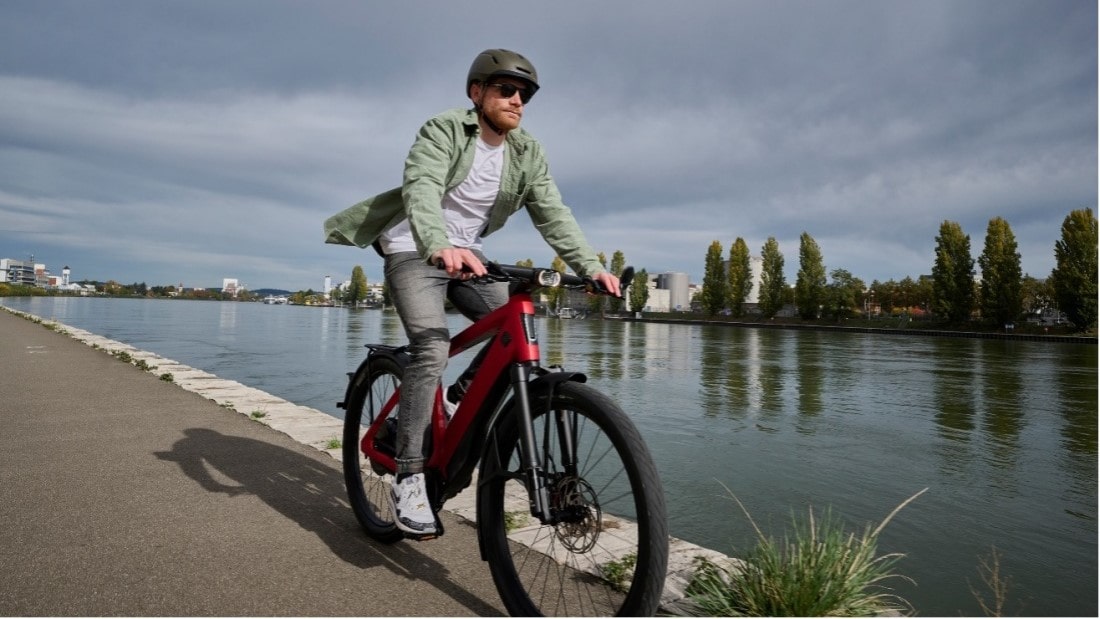
Belgium increases cycling allowance in 2024 but caps tax exemption
193 days ago
3 minutes
The Belgian government has decided to substantially increase the maximum tax-free allowance for commuting by bike, e-bike or speed pedelec, raising it from € 0.27 to € 0.35 per kilometer. The new rate is applicable since 1 January 2024. This initiative is based on the Belgian cycle plan ‘Be Cyclist’, which runs since 2021 until the end of this year.
Vincent Van Peteghem, Deputy Prime Minister and Minister of Finance, explains the increase: “For those for whom it is possible, cycling is an efficient, sustainable, and healthy way to commute to and from work. With the increase in the tax and social exemption for bicycle allowances, we aim to give an extra push to the number of employees opting for cycling. Because more people cycling also means fewer cars on the road, leading to reduced traffic congestion and better air quality. Undoubtedly, it has a positive impact on the health of our citizens.”
At the same time, an annual ceiling for tax exemption of € 2,500 has been introduced. This ceiling corresponds to an annual distance of 7,142 km, given a cycling allowance of € 0.35 per km. Based on 210 working days a year, this annual distance equals a one-way commute of 17 km. This may seem a realistic calculation, given that 92% of employees who cycle to work live within less than 15 km from their workplace. Nevertheless, there are speed pedelec riders who use their vehicle to commute over longer distances. LEVA-EU’s technical director for instance has a one-way commute of 40 km. In his case, the capped amount only allows for 89 paid commuting days a year.
It’s not clear why the government has introduced this cap, thus discriminating those riders who contribute most to avoiding emissions and to reducing congestion, whilst using more expensive vehicles than (e)bike riders. Beyond the cap of € 2,500, riders are still entitled to the cycling allowance of € 0.35 per km but the excess amount becomes subject to social security and tax.
The Belgian government is addicted to taxing everything and anything. The € 2,500 limit is probably a result of that obsession. It is a pity that no cost/benefit analysis has been carried out to determine the savings in external costs resulting from the replacement of a car with a speed pedelec. That analysis would undoubtedly show how counterproductive that cap is.
On a more positive note, until April last year, employers had no obligation to pay the cycling allowance. In May 2023, employers’ and employees’ organizations reached an agreement to introduce the entitlement to a cycling allowance in all collective labour agreements in the private sector. This however does not mean that employers must pay € 0.35 per km. They are entitled to pay a lesser amount or a fixed amount per commute.
Annick Roetynck
Annick is the Manager of LEVA-EU, with decades of experience in two-wheeled and light electric mobility.
Campaign success
Lorem ipsum dolor sit amet, consectetur adipisicing elit, sed do eiusmod tempor incididunt ut labore et dolore magna aliqua.
Member profile
Lorem ipsum dolor sit amet, consectetur adipisicing elit, sed do eiusmod tempor incididunt ut labore et dolore magna aliqua.